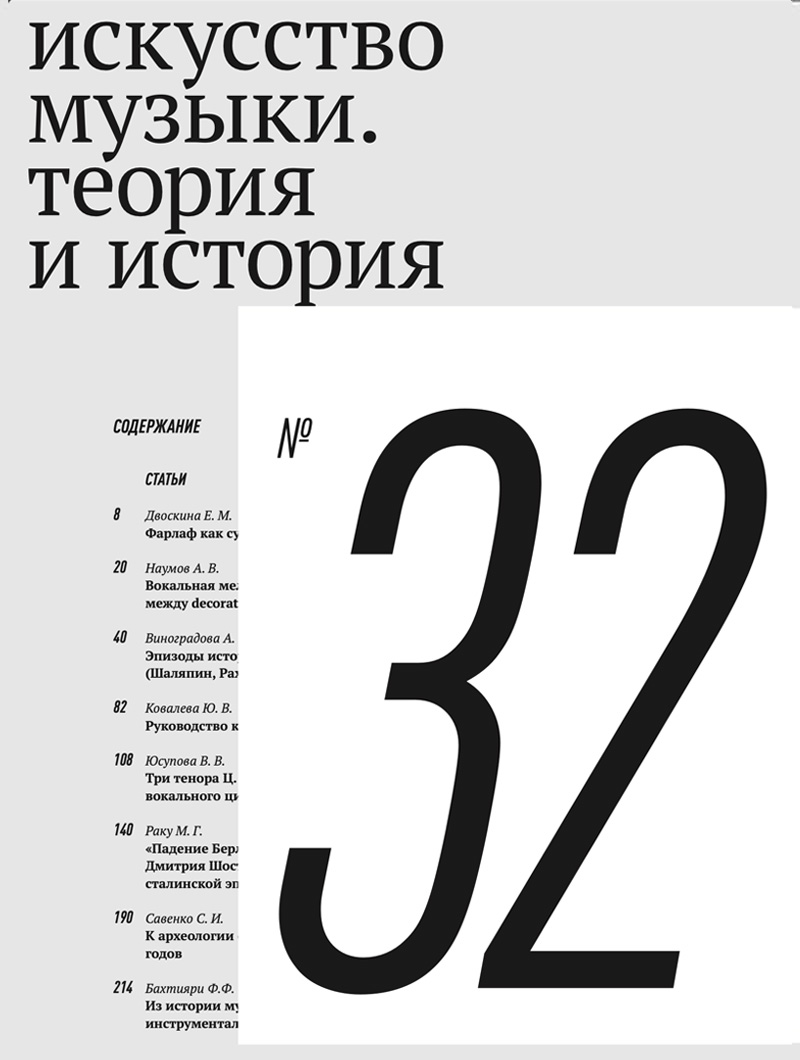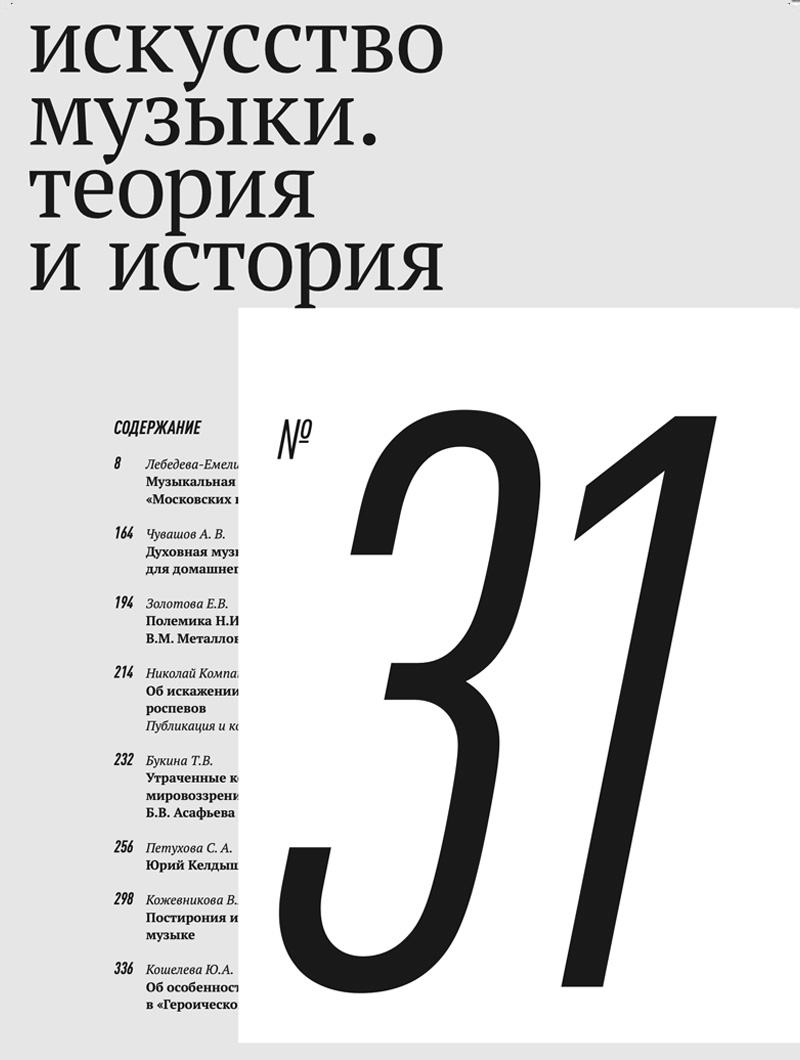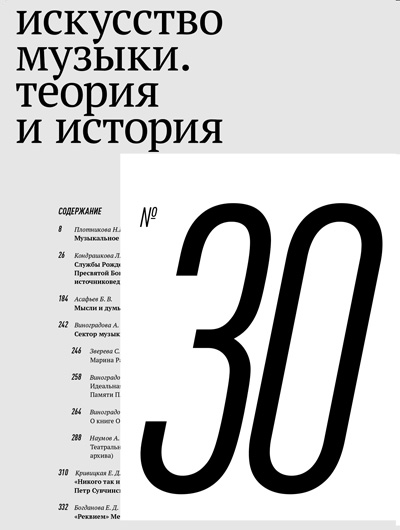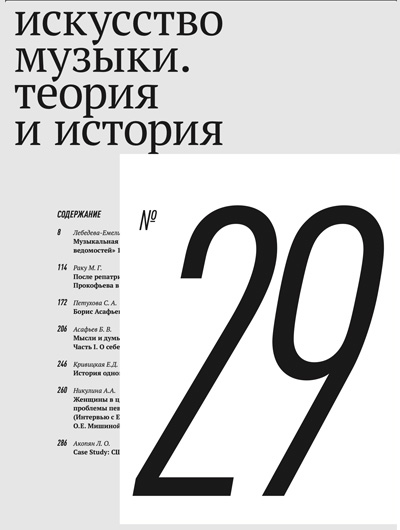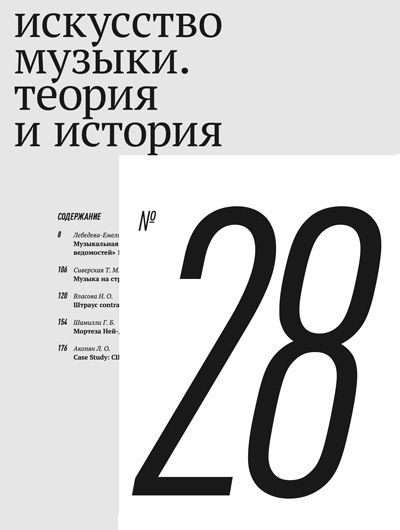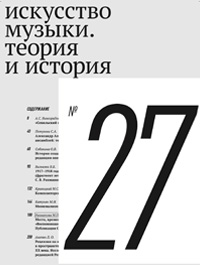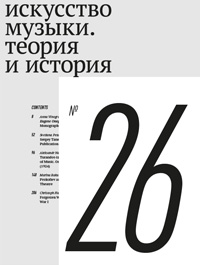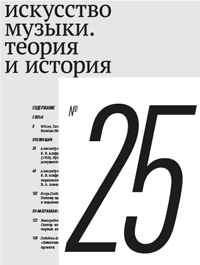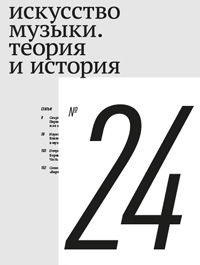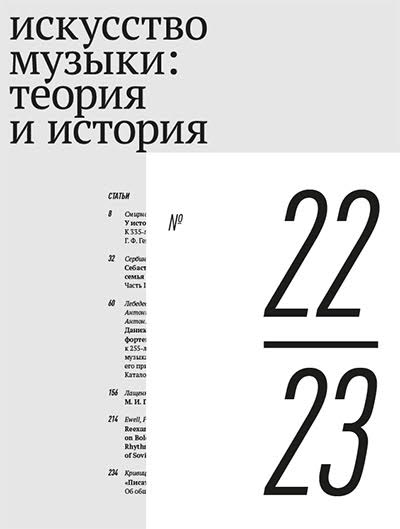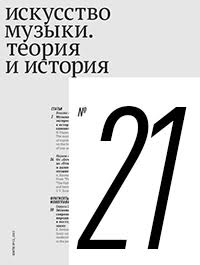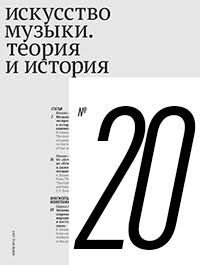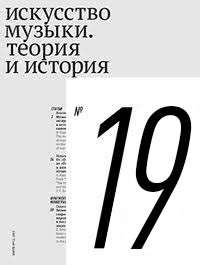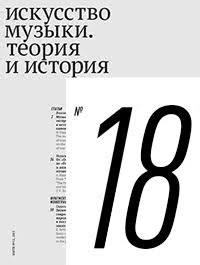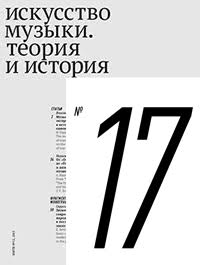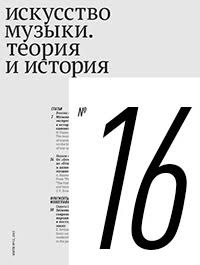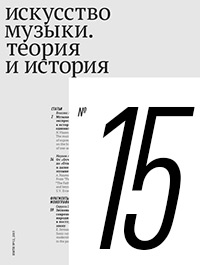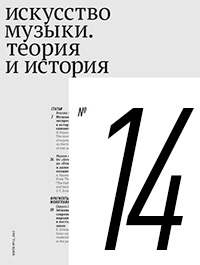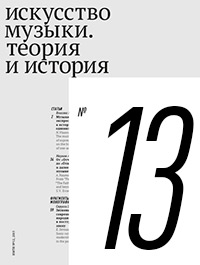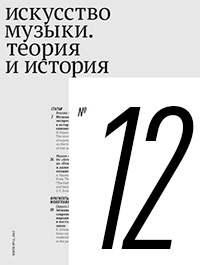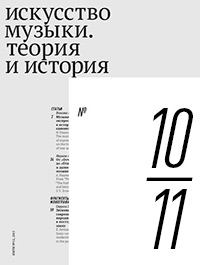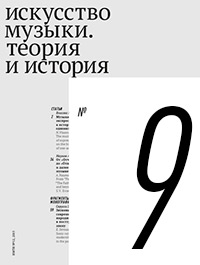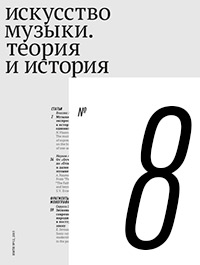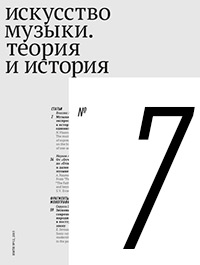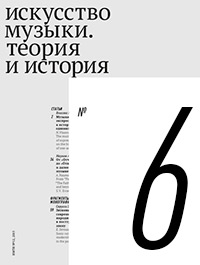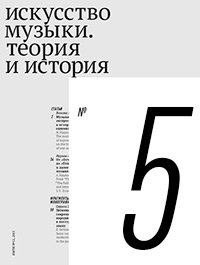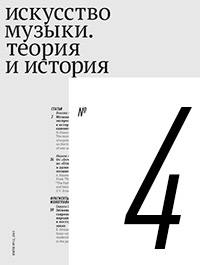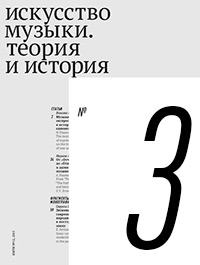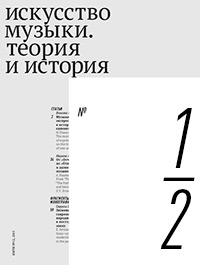2012 № 5
The fifth issue of the journal contains articles and excerpts from forthcoming books by musicologists from Russia, USA, and Ukraine. The texts are dedicated to phenomena of musical cultures of different countries – from medieval Armenia to the contemporary US and Poland. As usual in our journal, some articles contain sounding illustrations.
Though the medieval Armenian hymnography is based on the same general principles as the hymnography of other churches, the Armenian hymnody has retained some archaic traits which, obviously, disappeared from other traditions. The most important categories of medieval hymnography include the neumatic (in Armenian, khaz) notation and the octoëchos – a system of eight canonized melodic models, serving as source material for the whole body of hymn tunes. The article, on the example of the Armenian neumes and the Armenian version of octoëchos, reveals some essential characteristics of the archaic hymnody. It is shown that during the late Middle Ages the initial, strictly organized and canonized system disintegrated, giving way for individual creation. The article is intended to ‘demythologize’ the so-called khaz problem, which has been inadequately interpreted in the Armenian literature.
The article is dedicated to the virtually unexplored topic of immediate musical reactions to the events of the Patriotic War of 1812 in the oeuvre of Russian composers and of foreign musicians working in Russia.
This is the first attempt to throw light on the Moscow period of the life and career of A.M. Gedeonov (1791–1867), who is remembered as highly authoritative director of the Russian Imperial Theatres. The examined topics include Gedeonov’s Moscow environment, his experience of managing the Italian opera company, his participation in the city’s important cultural events, his immediate contacts with the organizers of the Moscow theatrical life. All this had an impact on his future activities as an outstanding theatre manager.
This publication is an excerpt from the forthcoming book on Robert Schumann’s song theatre. The article deals with Schumann’s late chamber vocal music and its connections with poetry and theatre. The genre evolution is studied on the example of works that are transitional between vocal cycle and mono-opera (opp. 104, 117 and 135) and between vocal cycle and cantata (opp. 74 and 138). A definition of the term ‘theatricalization’ is proposed.
This essay is based on the exploration of Russian and German magazines and newspapers in Berlin of the ‘20s, as well as on the material from the letters and memoirs of that time. The study focuses on the important musical events of ‘Russian Berlin’, as seen from the point of view of composers, interpreters and listeners (reviewers).
The piano music by T. Sikorski is a rare example of minimalism in the context of Polish “sonoristics”. J. Łuciuk and P. Szymański also composed avant-garde sonoristic piano compositions, highly original as regards their notation, sound atmosphere, and emotional content. This article is a part of the forthcoming monograph on the 20th century Polish piano music.
This publication is a fragment of the monograph Composers Who Wrote Musicals the author is presently working on. The book tells about those composers, who have laid the foundation of the mainstream musical as a new genre of musical and dramatic art, the beginnings of which date back to the end of the 19th century and which flourished in the 20th century. The present article is its chapter on Stephen Schwartz, a famous American composer.
The publication is based on the excerpts from Lourié’s American diaries and memoirs, dealing for the most part with his contemporaries and compatriots (both emigrants and those who had remained in Russia), such as Anna Akhmatova, Olga Glebova-Sudeikina, Serge Koussevitzky, Aleksandr Grechaninov, Marc Chagall, Saveliy Sorin, Serge Sudeikin, etc. Most of the excerpts are published for the first time.
